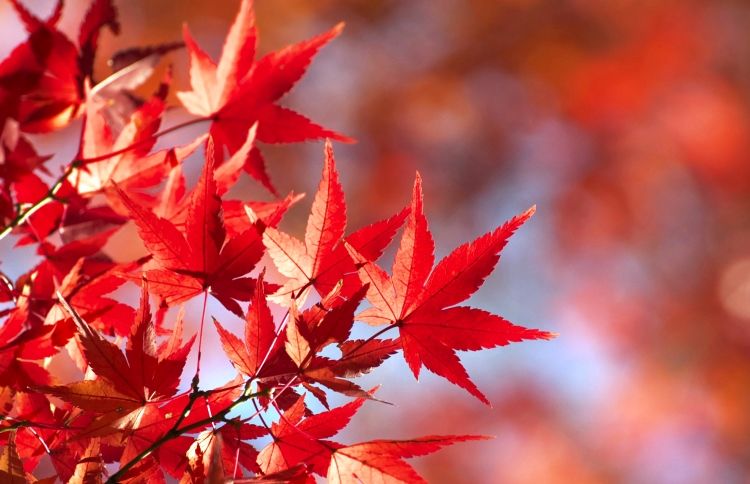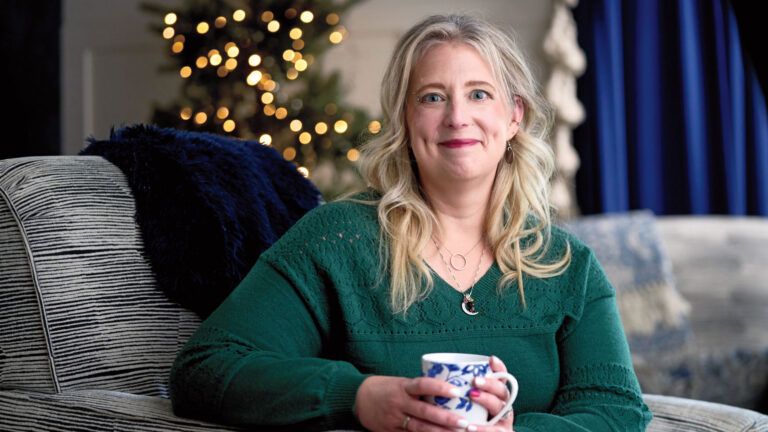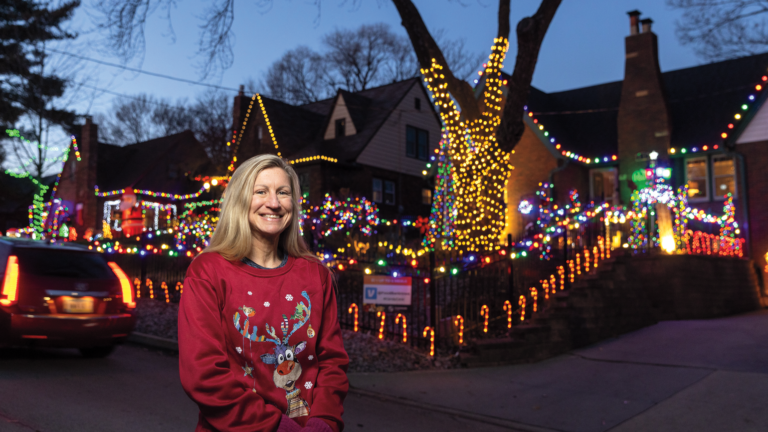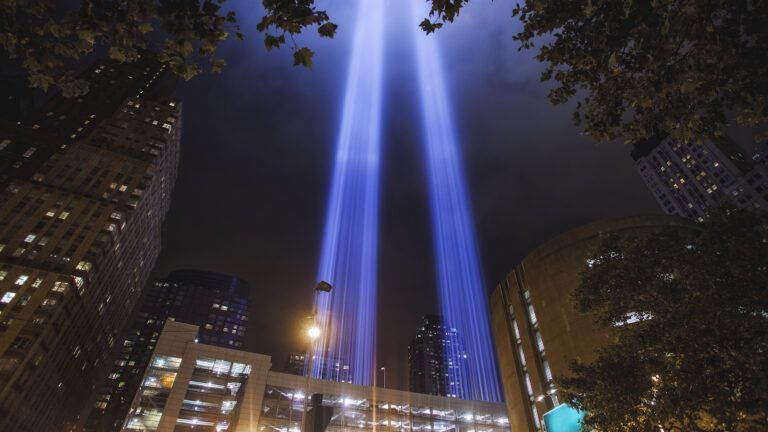I knelt beside the Japanese maple and grasped a slender, brittle branch. It felt dry in my hand. I twisted it gently, and it snapped. I tested another, larger branch. It, too, broke off with a sharp crack. I hung my head.
Only a few months old, and the tree was already dead. All around it, plants were thriving. Delicate-leafed azaleas. Hydrangeas with their moplike blooms. But the Japanese maple was supposed to be the centerpiece of this backyard garden. A memorial to my son Danny, who had been killed a few months earlier in a robbery.
I had nurtured the sapling so carefully. I stood and surveyed the rest of the garden. I had planted it myself in the weeks after Danny’s death. Literally carved it out of our back lawn. Most everything else had taken during the hot, humid Georgia summer. Everything but this maple, which sprouted from the soil just a few feet from a bench at the garden’s heart. I had done all I could to keep it going. Watered it carefully. Added fertilizer. Put mulch around the base. Nothing worked. It’s like Danny’s life, I thought bitterly. Nothing we did worked there either. Maybe I just need to accept that what’s gone is gone—and that’s it.
Danny had been a wonderful child: bright, good grades, well- behaved. Then, in high school, he had struggled to fit in—until he found the wrong crowd. He had begun hanging out with kids who did drugs. He tried marijuana and then moved on to LSD and, later, cocaine. Before we quite knew what had hit us, he was addicted.
We battled those drugs for eight long years, starting when Danny was just 15. We tried counselors, hospitals, tough love, kicking him out, moving him back in. And prayer. Lots of prayer. I prayed every day that Danny would find healing. That we all would. That somehow he, with our help, could kick this terrible addiction. But those prayers never seemed to get answered.
The day Danny was murdered, he was hanging out in a motel room. A few fellow drug users had come to the room to do some cocaine with him. Thinking that he had some money, they decided to hit him over the head and rob him. But they hit him too hard and he died. Police caught the killers a short time later. That afternoon two plainclothes officers showed up at our door, I was sitting at my desk, getting started on our taxes. It was April, when the sun shines and the air is fresh in Atlanta. Just the day before, my wife Sharon and I had gone to a nursery to buy spring plants—including a $15 Japanese maple sapling, all of 18 inches high.
The officers walked into the living room, asked if Sharon could come downstairs and told us in matter-of- fact voices what had happened. Numb, I went to find our daughter Laura, who was living at home at the time while attending Emory University. Then came the phone calls to our families. The following weeks were chaotic, with the funeral arrangements to be made, calls from the police about the murder case, friends and family visiting. Sharon and I were overwhelmed. Every task reminded me of the years of ache and helplessness.
One day I wandered out into the garage, where I had been putting all of the condolence gifts. There, scattered on the floor, was yet another chore: bunches of plants, sent with cards in pretty pots. They were thoughtful, but even contemplating disposing of them depressed me.
I walked back inside to the family room, which looks onto our backyard. It was a clear day, and the lawn shone green in the sunshine. I stared at it for a while, until a thought began forming: What if, instead of throwing those plants away, I put them in the ground? I like gardening, and I could picture a neatly bordered oval alive with blooms and deep green leaves. Maybe a path and a bench. A memory garden. A place to remember. But also a place where we might find peace. Peace we hadn’t felt in eight long years.
That evening, I discussed my gardening idea with Laura and Sharon. “That’s a great idea, Dad,” said Laura. “I think it will help you too.” Sharon, who had grown withdrawn since Danny’s death, said only, “I guess. But it seems like a lot of work. If it were up to me, I’d just throw them away.” But I needed that garden. The very next day I walked out to the backyard with a shovel and a 20-pound post-hole digger. Over the next week—time off I had after the funeral—I dug up a 20 x 30 foot section of lawn, setting aside any rocks I found to use as a border. Sweating in the warm sun, I chiseled the ground and prepared it for planting. After much agonizing over the right balance of sun and shade, I took the plants out of their pots, spread soil and fertilizer and began putting roots into the ground.
Those first days, hacking into Georgia’s hard clay dirt, I found myself cursing and railing with nearly every swing of the shovel. I cursed the drugs, the murderers. And I called out to Danny. Why? Pound. Why? Pound. Why?
As the garden progressed, though, my anger started to subside. I went back to my job at work and began doing most of the planting in the evenings. Working by twilight, I arranged azaleas into eye-catching patterns of white, coral and red. I grouped the hydrangeas to set off the other plants.
I bought a bench and situated it beneath a canopy of dogwood branches. The stones I had dug up earlier worked perfectly as a border, and I used others to make a path from an arched trellis to the bench. Sometimes, bent to the ground, my hands in the soil, I looked back and saw Sharon watching me through the kitchen window. Maybe when I’m done, we can sit on this bench together and enjoy these flowers, I thought. When the last azalea had been placed in the ground and the last stone laid, I stood back and examined my handiwork. It looked pretty good. But it still lacked one thing. A focal point. I looked around the patio and saw the Japanese maple sapling, still sitting in its pot. Perfect! I thought. I’ll plant it next to the bench.
Sharon and I had bought the little tree the day before Danny died. It would be as if a part of him were still alive, still with us. Now, five months later, holding the maple’s dead branches in my hand, that earlier glimmer of hope seemed mocking. Yes, just like Danny. Another hope shattered, I thought. Twisting the branches in my fingers, I thought long and hard. I knew what I should do with the tree. Dig it up and throw it away. After all, hadn’t counselors sometimes advised us to give up on Danny? Kick him out and dust off our hands?
We hadn’t—and what had our persistence accomplished? Still, looking at that small maple, I thought about everything that it signified, and felt something stir inside me: a flicker of determi- nation, a tiny spark of hope. I wouldn’t quit—not yet. I’ll give it one last chance, I decided. So I dug the maple out of its spot by the bench and dragged it to a walled ledge that got morning sunlight. I scooped out a new hole, put the tree in, shoveled dirt on top, and went inside the house.
The following spring, the azaleas bloomed again. Sharon, who had begun taking walks in the garden, occasionally hurried into the house to tell me about the appearance of a new, particularly beautiful flower. And in those moments I could see her beginning to heal. One day I was standing in the family room surveying the yard myself. Everything was bright with new spring growth. I glanced toward the maple, about 50 feet away, and saw a patch of red in it. Is there a cardinal in that tree? I wondered.
I grabbed a pair of binoculars and looked. The red patch wasn’t moving. What on earth could it be? I set down the binoculars and went outside. I walked around the garden, past the trellis laced with Carolina jasmine, and stood before the maple.
A small batch of red leaves was growing from a branch. They shivered in the afternoon breeze. I reached out and touched one. It was soft and delicate. Impossible, I thought. This tree was dead. But these leaves are alive. I stood, uncertain whether I should even tell Sharon. It didn’t seem quite real—the maple, come back to life. And yet, looking around that vibrant, peaceful garden, I knew it was true. I smiled. An image came to mind, an image of Danny, an image that filled me with peace and reassurance. I stood by the maple a moment longer. Then I went inside to tell Sharon.






